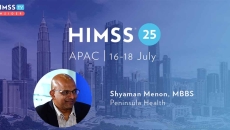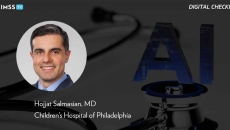Clinical
An open letter, signed by current and former CDC, NIH and HHS staff, accuses Health and Human Services Secretary RFK Jr. of sowing public mistrust by making false claims, and asks that he stop misusing agency data.
HIMSS25 APAC
The private Indonesian healthcare provider is preparing to launch AI in radiology, says IT Director Wildan A. Djohany.
At UGM25, the EHR giant announced new artificial intelligence models being developed for clinical charting through a collaboration with Microsoft, a patient-facing generative AI chatbot and a revenue cycle management agent.
Dr. Deepti Pandita, CMIO & VP of Clinical Informatics at University of California Irvine Health, says AI is a "shiny object" right now, but finding success depends on getting the scut work of data management right.
HIMSS25 APAC
Australian health providers also face the challenge of developing infrastructure that supports digital technologies, notes Dr Shyaman Menon, Peninsula Health executive director of Medical Services.
It has also saved around $1,700 in costs per patient, according to a recent study.
In one year, AMA's members leaped from curiosity in artificial intelligence tools to their integration into practice. Now, an eight-step governance framework encourages providers to establish AI accountability, oversight and staff training requirements.
HIMSS25 APAC
Institut Jantung Negara is incorporating AI to further prove its EMR and analytics capabilities, shares clinical director of Informatics, Dr Alwi Mohamed Yunus.
Most respondents also reported having changed consultation dynamics with their patients.
Healthcare artificial intelligence strategy at hospitals and health systems is a big challenge as the AI market and tech explode around providers. Dr. Hojjat Salmasian, CDAO and leader of AI at Children's Hospital of Philadelphia, has answers.








